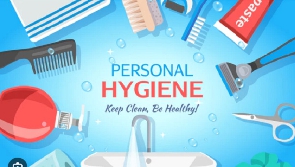 Learning and practising personal hygiene goes a long way
Learning and practising personal hygiene goes a long way
Among the many definitions of ‘health and well-being,’ Merriam-Webster, an online dictionary, emphatically puts it as the “condition of being sound in body, mind, or spirit, and the state of being happy, healthy, or prosperous.”
In a philosophical realm, health and well-being involve fundamental questions about the nature of human existence, the relationship between mind and body, and the nature of good life.
Philosophers have explored questions such as: what it means to be healthy, what constitutes well-being, and what moral obligations we have to promote health and well-being. These questions are often approached from a variety of philosophical perspectives, including ethics, metaphysics, and epistemology.
Many philosophers have explored questions related to health and well-being. Some of the most notable include Aristotle, who wrote extensively on the concept of eudaimonia, or human flourishing. And Immanuel Kant argued that we have a moral duty to care for our health and that of others, and John Stuart Mill emphasized the importance of individual freedom and autonomy in the pursuit of happiness and well-being. Other philosophers who have contributed to this area of study include Plato, Epicurus, and Jeremy Bentham.
In my most recent inquisition for attaining knowledge and educating the public on pregnancy, good hygiene practices, and how to have a healthy baby, I follow Immanuel Kant’s argument — that we have a moral duty to care for our health and that of others.
In an online journal of health ethics (Right or Duty: A Kantian Argument for Universal Healthcare). The question of universal healthcare brings with it the question of whether all people, simply by being human, have a right to healthcare. Human rights are widely understood as either welfare rights or liberty rights... The right to healthcare, if it exists, is a welfare right because, simply guaranteeing by law, that no one can interfere with one’s right to healthcare does nothing to provide healthcare. A right to healthcare, when one has no access to healthcare, is essentially a meaningless right.
But in this case, a healthcare facility is an essential institution for the well-being of the people. Again, in my quest in learning about pregnancy, good hygiene practices, and how to have a healthy baby, I visited a hospital in Osu. I shall cogently outline what pregnancy is, good hygiene practices, and their benefits, and how to have sound and healthy babies. It is worth noting that I did not know how to spell hygiene until now because I have never used the word in writing.
Pregnancy is the period during which a fertilized egg develops into a fetus inside a woman's uterus. It typically lasts around 9 months and is divided into three trimesters. During pregnancy, a woman's body undergoes significant changes as it provides nutrients and support to the developing fetus.
During pregnancy, a woman should take care of her physical and emotional health to ensure the best possible outcome for both herself and the baby. This includes eating a healthy and balanced diet which provides all the necessary nutrients for the baby's growth and development.
A balanced diet for pregnant women should include a variety of nutrient-rich foods from all food groups. Some examples include fruits and vegetables (leafy greens, citrus fruits, berries, and sweet potatoes). These are important sources of vitamins, minerals, and fibre.
Other balanced diets include; whole grains(oatmeal, whole wheat bread, and brown rice). Lean protein(lean meats, poultry, fish, and beans). Dairy products (milk, cheese, and yoghurt). And healthy fats (avocados, nuts, seeds, and fatty fish). Which are sources of vitamins, minerals, and fibre. Energy provider. Foetal growth and development. Sources of calcium and vitamin D. And foetal brain development, respectively.
Predominantly, pregnant women should stay hydrated by drinking plenty of water and other fluids throughout the day.
Other pregnancy precautions include regular exercise, and abstinence from alcohol, tobacco, and other harmful substances. Regular prenatal care, including check-ups with a healthcare provider and necessary testing, managing stress in healthy ways, such as through relaxation techniques or counselling, educating herself about pregnancy, childbirth, and parenting, preparing for the baby's arrival, including setting up a nursery and purchasing necessary supplies. These are measures of pregnancy and having a healthy baby.
Finally, it is said that “charity begins at home, and ends abroad.” Learning and practising personal hygiene goes a long way. This includes reducing the risk of illness and diseases, preventing body odour, preventing sexually transmitted infections, and maintaining a healthy body.
Some practices in securing good health include regular hand washing, wearing a mask to prevent the spread of airborne illnesses, covering your mouth and nose with a tissue or your elbow when coughing or sneezing, avoiding close contact with people who are sick, staying home when you are sick to avoid spreading illness to others, disinfecting frequently touched surfaces regularly, such as door handles, light switches, and shopping carts, and avoiding touching your face, especially your eyes, nose, and mouth, etc.
I look forward to getting married and supporting my partner in creating a healthy and loving family. I believe in living a good life every day and making the most of every moment.